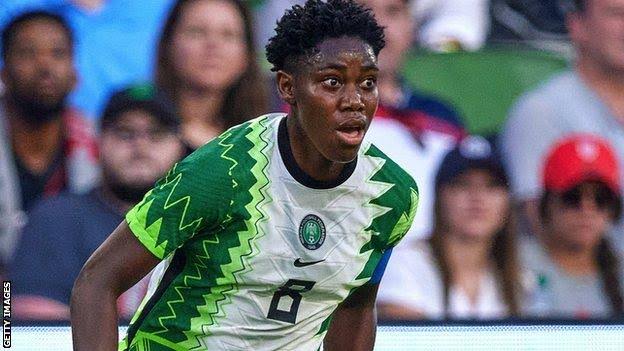It is a troubling question that is not likely to go away very soon. It is a subject the perplexity of which is dismissed with a wave of the hand as inscrutable: What’s in a name? It is even our attitude to it that will make the question to be with us for a long while. Nearly two years ago, the question was raised in one of the mails that I received from Ghana, sent by one of the readers of this column. As I did state at the time: Among some of the mails I regularly receive is one containing an enquiry which I find thoughtful and interesting even though the kernel of the enquiry that borders on what is in a name was not strange. It is a question that is often asked. The post read: “In U.S.A. you see names like Bush, Stone yet they progress. But in Africa, Favour is struggling to feed, Blessing is begging for data, Rejoice is suffering from depression, Wisdom no get sense. Victory failed exams and even Courage fears dogs.” The sender asked pointedly: “What do you think of the post…?” The question bordered on why was it so and if I may rephrase it, since it is still prevailing: Why is it so?
As I did state at the time, confirming his observation: In Europe, in the United States and Canada, people bear Mr. Brown, Dr. (Mrs.) Green and as the enquirer had rightly noted, Mr. Bush and Mr. Stone. There is Mr. Gladstone. There are many more. The United States has had two Presidents bearing Mr. Bush. If we go by the dictionary definition of the words, we can claim to know the meaning of Bush and Stone. Brown and Green denote colours. We then ask, how come that a man bears Mr. Green and another Mr. Brown or Miss White.
What has triggered my interest in the subject this time is a conversation on the platform of my former colleagues in this newspaper after it was noted that one of the early priests who was born in Nigeria in 1860 surprisingly dropped his English name upon his ordination as a Baptist Minister in Liberia. David Brown Vincent changed his name to Mojola Agbebi on August 24, 1894, with the following words: “I believe every African bearing a foreign name to be like a ship sailing under foreign colours and every African a foreign dress is like the jackdaw in peacock feathers.” There was a biographical sketch of who David Brown Vincent was: “A pioneer of African Nationalism.” He was born in Nigeria and was prominent in the African nationalist struggles of his era, the late 19th and early 20th centuries. He played a major role in the establishment of the Native Baptist Church in Lagos. With his credentials and nationalists exertions, I can see the question “What’s in a name?” which arose in the course of the conversation answered. What was driving his spirit which goaded him to a new name? Can we say the rays emitted from within him defined his spirit and, therefore, his name? I will come to it presently.
Many people believe a name given at christening is arbitrary and randomly chosen. Some parents would say they simply name their children after their heroes or heroines. For Christians, the common names that can be said to readily appeal to them and which they grab are Abraham, Moses, Solomon, David, Isaiah, Samuel, Jeremiah, Daniel, Job, Joseph, Elijah, Elisha, Ruth, Esther, Joan, Deborah, Noah, Ezekiel, and Jonathan to mention only a few from the Old Testament—all prominent figures. From the New Testament, the commonest names parents feel unable to resist for the children are Mary, Elizabeth, John, Matthew, Paul, Peter, Mark, James, Nathaniel, Hezekiah and Timothy, again to list only a few. Two names parents intuitively touch with a long pole, indeed avoid are Judas and Pontius Pilate. Much as parents ponder, much as they reflect, no one moves near naming his child after villains. The commonest names most Moslems go for are Mohammed, Ahmed, Umar, Abdullahi, Abdulkadir, Ibrahim, Sulaiman and AbduRauf. In indigenous names, most reflect what may be regarded as the parents’ disposition to worshipful adoration of the Most High or some other spiritual values they may profess such as Sangogbemi, roughly translated as the god of thunder blesses me.
Some in adulthood add to their first names appellation of figures they adore, either in politics, music or sports. I know an Anthony who renamed himself after Anthony Enahoro. There are Johns after John the Baptist, Kennedy after John F. Kennedy and Martin after civil rights hero, Martin Luther King Jnr. There is Clinton after Bill Clinton. Because these are deliberate, does it mean names can be given randomly? The same question can be asked when parents avoid naming their children after Judas, Hitler or Pontius Pilate. In thoughts signifying the desire to keep the family name, many a man gives his first name to his son and the wife, hers to a daughter, usually the first child in either case. Names of forebears are exhumed, dusted up and given to children.
So, what’s in a name? Quite a lot! If it were not so, why does no one name his son Judas Iscariot, Hitler or daughter Jezebel? A good name is a treasure. It is regarded as fate: “Nomen est omen.” This was the high recognition of the people of old, the knowledge the modern man has lost out of vanity and conceit. I recall that a highly regarded non-conformist and social critic once wrote, commenting on foreign names: “Every such name cuts a bad figure not so much for the wearer as for the people the grotesque wearer represents. To bear an indigenous name is to be considered inferior, and so cheaply the queer foreign name is sneaked in.” In reaction to the article and previous ones as was the case with Vincent supposedly driven by nationalistic instincts decades before this on the subject, many people began to hide their foreign names or drop them altogether to embrace the call and their pride of nationalism. They were in error.
There are no accidents in the names we bear, nor were they chosen for fancy or in honour or remembrance of a hero or heroine even if the contrary appears to be so. Each person is the name he bears! The monumental Work, “In The Light of Truth”, The Grail Message says of it: “All men stand in the Law as does every creature: they are enveloped and penetrated by the Law and in the Law and through the Law they have also come into existence. They live in it, and with their free volition they themselves weave their own fate, choose their own ways.
“When incarnated here upon earth these self-chosen paths lead them unfailingly to those parents whom they absolutely need for their childhood. Thus they also enter into those circumstances which are useful to them, because they receive just that which has ripened for them as the fruit of the threads of their own volition.”
It states further: “Every stirring of his spirit, every wavering of his soul, every action of his body, and every word he utters automatically and unconsciously ties ever new threads to the existing ones, attaching them, connecting one with the other , and interweaving them. The human being forms and forms, and even thereby forms in advance the earth-names which he must bear in his next life on earth, and which he will inevitably bear because the threads of his own weaving surely and unswervingly lead him to it.
“Thus every earth-name also stands in the Law. It is never accidental and never without the bearer himself having provided the basis for it beforehand, because in the process of incarnating every soul runs irresistibly along the threads of its own weaving, as if on rails, to the place where it exactly belongs in accordance with the Primordial Law of Creation.”
The revelation continues: “Thus every person on earth bears precisely that name which he earned for himself. Therefore, his name is not only what it is, he is not only called by this name, but he is this name. Man is what his name says!
“There is no chance about the matter.” We can see from the foregoing why names ring deep down our souls. Where names are interposed or there is a mistaken identity reaction is prompt. There is frowning; the wrinkling of the face is palpable, demanding immediate rectification. A Mr. Green will not accept his name being misspelt or mispronounced. Mr. Brown or Mr. Stone will be instantly incensed. Letters are immediately fired to editors when a man’s name is misspelt in a report. Indistinguishable as Martin is from Martins, Daniel from Daniels, there is a great fuse if the letter ‘s’ is missing in either Martins or Daniels. Mr. Martin will not take kindly to his being addressed as Mr. Martins nor will Mr. Daniels accept being addressed as Mr. Daniel. The difference in the two examples is what many would dismiss as a non-issue, a mere ‘s’. But they make all the difference in the tones and colours emitted. A Mary will like to be addressed as Mary and neither as Mariam nor Marian. Each can be clearly identified and will identify herself when called. Evans is not the same person as Evan.
What is in it that an omission of a letter or an importation of it causes so much agitation and umbrage, indeed bitterness? What we should ask is what radiation does that singular letter bring to the totality of vibrations that gives a person his identity? It all demonstrates the close relationship between the name and its bearer. A Senate President in Nigeria had had to lose his seat as a result of misspelling of his first name in his documentation. As I once stated discussing this subject, in his first coming as Head of State on 31 December, 1983, Buhari wasted no time in protesting to editors in a statement personally signed by him that he was not Mohammed Buhari, but Muhammadu Buhari. The proverbial Lagos-Ibadan axis of the Nigerian Press at the time was more familiar with Mohammed, Ahmed, Momodu or Busari. All newspapers reported that Colonel Mohammed Buhari as he then was had arrived at the Lagos Airport and had been named Head of State after his troops drove their tanks into the corridors of power, sacking Alhaji Shehu Shagari’s Administration.
It could not be for nothing that there is umbrage and protestation when a name is misspelt or wrongly pronounced. What is the current that is activated in each human being that makes him to identify with the name he is called and addressed? What is it that is astir? Something is triggered. What is astir that makes a dog or a cat respond to the name they are called? As the higher knowledge, mediated in the Grail Message spreading on earth in these times reveals, everything radiates, including the inanimate objects. They emit their individual rays sending out tones. The form, the content, the material and colour to which we hardly pay attention lead an object to be recognised by the designation attached to it and by which it is generally called. Name by which each is known separates one from the other by its vibration and in the mental pictures of them we carry in our minds and communicate. In other words, even for inanimate subjects, designations for them are not arbitrarily given how much more names of human beings. We use sounds correspondent with the qualities of a particular object to give it label. We are prodded albeit unconsciously by the power in the Law of Attraction of Similar Species to give it designation.
A man radiates, the hallow of his radiations is called aura. Everyone displays his aura, usually unconsciously and when it is sensed it is taken for granted. What message is to be read therefrom no one cares, yet the presence of a person could be abhorrent, putting off people without much ado while the presence of some people and therewith their aura could be soothing; it is inviting; it is welcoming. It portrays dignified presence even where he does not say a word. The aura of a man is of two types: Violet and dull yellow. The aura of a noble man, one who is refined; a man who has firm volition for what is good, one who has a high spiritual goal is violet. He radiates peace and confidence. His presence is calming and delightful. On the contrary enveloping an evil man is aura that is dull yellow, the radiation of his being. A clairvoyant may be able to see an aura and may advise that one stay clear of a person whose aura puts off his fellow men.
It must bear re-stating that we are now in the Age of Enlightenment which is the Age of the Holy Spirit and with it comes higher, extended and complete knowledge. Through the knowledge we come to recognise that the whole Creation is governed by Law and each human being stands under the Law including the name he or she bears. Through the Law, either the Law of Attraction of Homogeneous Species or the Law of Reciprocal Action, a soul is led unswervingly to parents with correspondent attributes and nature. He thus takes on the surname of the parents. The first name is his own totality which connotes his talents and abilities, and the surname his fate. When a man bears Mr. Brown we do not know the tones and colours he sends out and in which he swings. The same goes for Mr. Gladstone and Miss White.
A soul hovers in the vicinity of its prospective mother. When it takes possession of the body woven for it by the Nature Beings in the mother’s womb which occurs when the pregnancy has gone halfway the baby begins to radiate to the parents. With the incarnation the mother begins to glow and to know special joy. The period of joy prepares her to be more receptive. She begins to think more seriously about the name the baby is to bear at birth. The radiations of the spirit of the baby exercise a steering influence on how the parents think, guiding their thoughts in such a way they eventually settle for a name it is to bear. No matter how long it takes them, no matter the reflection or calculation, even if it is at the last hour they will come under the pressure of the radiations the soul-child emits to settle for only what it whispers as its name. It could even be the priest or grandmother who is more open and receptive to pick the name. The point I am driving at is that no name is arbitrarily given. Each person comes with his name –which it has woven for itself.

 3 months ago
40
3 months ago
40















 English (US) ·
English (US) ·